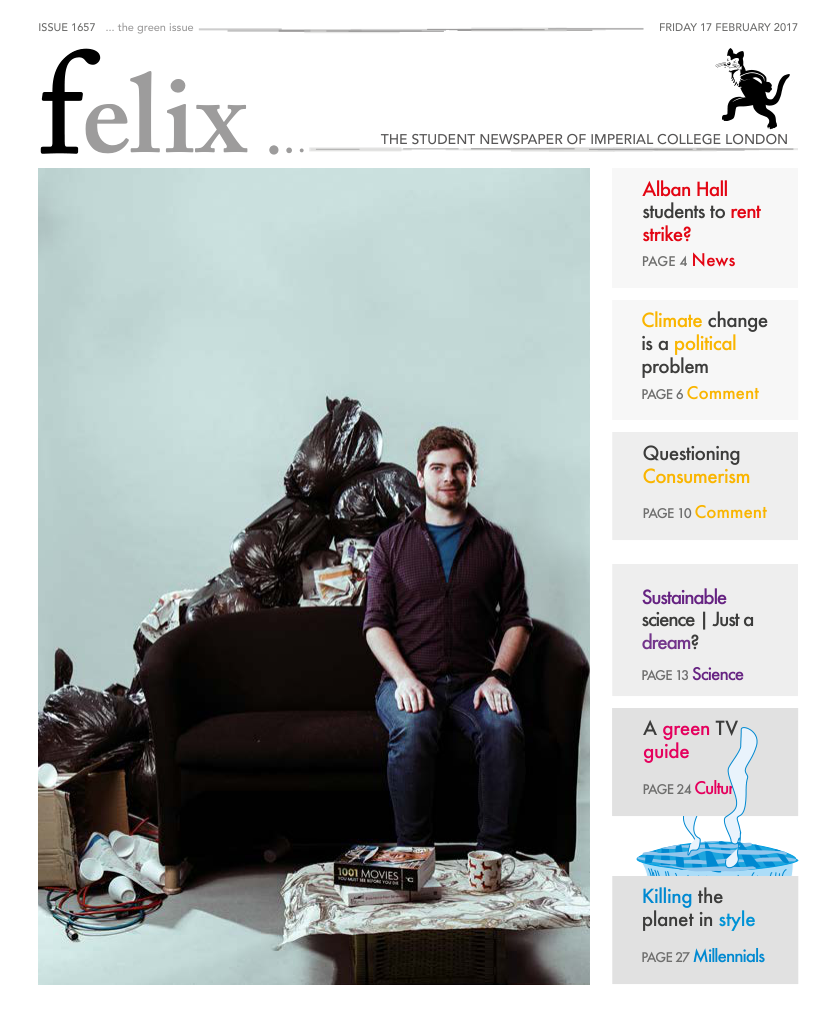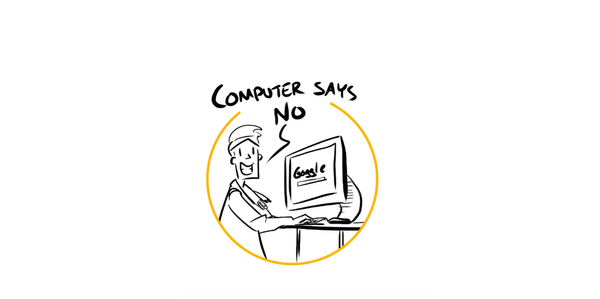Postgraduate study is wrought with classist undertones
Tessa Davey explains why PhDs are near-impossible to finance without family help

The UK has a vast historic class divide – only those from the upper-middle classes who are in severe denial about our country would go so far as to say that class does not remain a huge cultural barrier today. Education has traditionally been something for the rich, and our modern higher education system is designed to, in theory, reverse this. Today, no one, politicians claim, is prevented from attending university because they can't afford it.
And to some extent, this is true. I started university with an assessed family income well below the lowest threshold. I got bursaries and loans; sure, I have £50,000 of debt that I’m going to be paying off for the rest of my life, but at the time I wasn't lacking for money. This class divide bit me in the backside in other ways at Imperial where, relative to the majority of grammar school or privately-educated students (or even just those who went to good middle-class schools in south east England), my rural Welsh state education just didn't stack up, and I struggled more than most. Further to the educational difficulties, socialising at a Russell Group university when you're someone into whom entitlement and assertiveness have not been bred can make you a bit awkward at best, and a social pariah at worst. But, all this aside, I was able to get a phenomenally well-respected undergraduate degree, something that my parents certainly never did, and so, to some extent, the system works. Great.
Where the system is completely failing working class students is in postgraduate study, and I think Imperial is particularly guilty of ignoring this. The process of getting a doctorate is simply not designed for someone who is not able to self-fund at least part of their studies, and this requirement can be a dealbreaker – particularly when you want to study in the most expensive neighbourhood in the country.
Most PhD students get the basic annual stipend of about £15,500 (although most DTCs (Doctoral Training Centres) and the Imperial scholarships pay significantly more. Why, I wonder, are these students deserving of more money?) which just about gets you a GradPad room and a handful of change. Sure, you can rent private accommodation, but even then this amount of money is barely enough to scrape by on. Undergrads living on much less money and eating beans on toast every night: yes, I hear you, but after nine years at imperial I deserve to be able to afford a fucking burrito if I want one (and there are more legitimate reasons for us needing more money, such as needing suitable attire for conferences, having families to support, and our daily coffee intake being significantly higher). Most PhD students, particularly the poorer ones, tend to supplement this with hours of GTAing, which takes up a huge amount of time, and really eats into your work, meaning lower quality research.
And then, of course, there's the matter of how long your funding lasts. Although it's very unusual (even for the best student) to finish a PhD completely in three years (most take almost four), huge numbers of us only get funding for three years. Some people manage to get funding extensions, but, for most, what it works out to is almost a year of unpaid work. Does that seem reasonable? Or more like slave labour? We can't leave, because we need to finish our degree, and unlike in other countries such as Germany, we can't claim benefits because we're still technically students. And trust me, it takes this long. We're not just faffing around and taking our time because we're too comfortable.
With this unpaid component of your PhD being almost a necessity, how can you prepare for it? You have no idea how long it will be, and you can’t really save up earlier in your studies either. You probably can’t get a loan as you have no income, and so unless you're fortunate enough to have family or friends who can support you, usually you're in a really sticky situation. And it's unpredictable; it can spring up on anyone whose results are delayed or unexpected. When a colleague takes six months writing their part of a paper, or your samples get destroyed when an MSci student contaminates the glovebox: research is unpredictable and it's the ones at the bottom of the ladder who are suffering for it.
A study by Swansea University found that just under 5% of students are in some way involved in the sex industry. This may seem completely alien from our experience at an elite university of predominately wealthy students, but even if their data is skewed, they still collected data from thousands of students that demonstrates that it’s not a minor problem. I remember being surprised to read (in a different study) that around 10% of female PhD students turn to prostitution towards the end of their studies. This isn't really surprising. I’ve seen final year PhD students who are writing the most challenging document of their lives, eking out a can of soup for a full day, because they can't afford to buy any more food than that. I've been one of London’s hidden homeless since September, taking advantage of the generosity of friends who put a roof over my head (and often food in my belly), and having short bursts in hostels when I can't find a place to stay. London’s hostels are full of people like me, all stuck. We have smartphones and nice clothes to wear, but we're still scraping by at the mercy of other people’s kindness.
And remember, even if you can raise enough money to support yourself by turning a trick here and there, or tutoring rich GCSE students living in Notting Hill, you can't move house, get a new phone contract, or do anything that requires a credit check, because you don't have a reportable income. Like many in London, you're stuck with illegal sublets on gumtree and dodgy jailbroken iPhones on eBay, making you feel like you don't quite belong anywhere.
Some people are less fortunate than me. My father has been scraping together and offering me every last spare penny, and my mother has been insistent on sending me money for things like contact lenses and dentist appointments. But so many people don't have this, and I've witnessed people giving up on their dreams of being a doctor because they know they’ll never be able to afford to finish. There is some help available – the Student Support Fund (which you’re helpfully emailed about as you crawl towards the end, as though they know you're facing hardship!) offers up to £2,000 (sometimes a grant, sometimes a loan) for unexpected expenses. It’s great that they do this, but two grand doesn't go very far when you're trying to fund an average of around six months of expenses that it's hard to argue were unexpected when everyone knows how expensive living in London is, and how the system works.
Some supervisors are more helpful than others – some help you find grant extensions, put you on other projects, or employ you as research assistants, while others misguidedly believe that a project with three years of funding should take you three years and if you don't manage to finish it in that time, it's your problem. It shouldn't be the case that your very quality of life is dependent on whether you get an empathetic supervisor, have a partner on whom you can be dependent, or have well-off parents who are willing to give you handouts, particularly when you're in your late twenties.
Unlike an undergraduate or master's degree, you don't do a PhD to get rich. People with PhDs will earn, on average over their lifetime, less than someone with only a masters degree, thanks to these years of very low income and a minimal difference to later earnings. You do a PhD because you're passionate about something, and it's easy to see how the prospect of years of just about getting by could be off-putting and a huge barrier to entry for lower-income students, even without the challenges caused by inadequate support.
Other countries do it better; the UK is one of the only countries where doctoral candidates are treated like this. In most countries, PhD studies afford a level of respect that brings with it a consistent and adequate salary. By forcing us into unpaid work, our background becomes crucial, and those without the right background just don't have the same opportunities. When postgraduate students don't get equal treatment to our friends who got 'real jobs', the system becomes inherently classist. In the same way that the working class were kept out of universities in the past, they're still being forced out now. Academia used to be a place where the curious rich could play, but we moved on from that hundreds of years ago, and now it’s full of passionate people wanting to make a difference and break new grounds of knowledge. Why do we insist that only the privileged get the pleasure of doing that?










